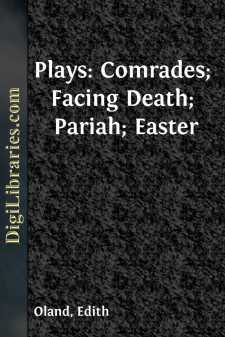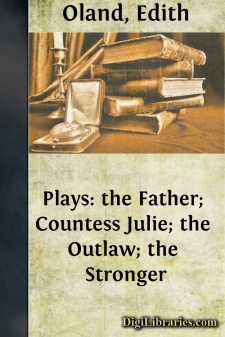Categories
- Antiques & Collectibles 13
- Architecture 36
- Art 48
- Bibles 22
- Biography & Autobiography 813
- Body, Mind & Spirit 142
- Business & Economics 28
- Children's Books 17
- Children's Fiction 14
- Computers 4
- Cooking 94
- Crafts & Hobbies 4
- Drama 346
- Education 46
- Family & Relationships 57
- Fiction 11829
- Games 19
- Gardening 17
- Health & Fitness 34
- History 1377
- House & Home 1
- Humor 147
- Juvenile Fiction 1873
- Juvenile Nonfiction 202
- Language Arts & Disciplines 88
- Law 16
- Literary Collections 686
- Literary Criticism 179
- Mathematics 13
- Medical 41
- Music 40
- Nature 179
- Non-Classifiable 1768
- Performing Arts 7
- Periodicals 1453
- Philosophy 64
- Photography 2
- Poetry 896
- Political Science 203
- Psychology 42
- Reference 154
- Religion 513
- Science 126
- Self-Help 84
- Social Science 81
- Sports & Recreation 34
- Study Aids 3
- Technology & Engineering 59
- Transportation 23
- Travel 463
- True Crime 29
Plays: Comrades; Facing Death; Pariah; Easter
by: Edith Oland
Description:
Excerpt
August Strindberg died at Stockholm On May 14, 1912, just ten days after the first of his plays given in English in the United States had completed a month's engagement. This play was "The Father," which, on April 9, 1912, was produced at the Berkeley Theatre in New York, the same little theatre that witnessed in 1894 the first performance in this country of Ibsen's "Ghosts."
It happened that August Lindberg, the eminent Swedish actor and friend of Strindberg [who, by the way, was the first producer of "Ghosts" in any language], was visiting this country and came to see a performance of "The Father." His enthusiasm over the interpretation given Strindberg, in the English rendering of the play as well as in the acting, led him to cable a congratulatory message to Strindberg; and upon departing for Stockholm, he asked for some of the many letters of appreciation from significant sources which the production of "The Father" had called forth. These he wished to give to Strindberg as further assurance "that he has," to use Herr Lindberg's words, "the right representatives in this country." It is gratifying to those who esteem it a rare privilege to be the introducers of Strindberg's powerful dramatic art to the American stage to know that he finally found his genius recognized on this side of the ocean.
"Comrades," the first play in the present volume, belongs to the same momentous creative period as "The Father" and "Countess Julie," although there is little anecdotic history attaching to this vigorous comedy. It was written in Denmark, where Strindberg, after finishing "The Father" in Switzerland in 1887, went with his family to live for two years, and was published March 21, 1888.
Although the scene of the comedy is laid in Paris, all the characters are Swedish, which may be accounted for by the fact that the feminist movement, of which "Comrades" is a delicious, stinging satire, had been more agitated at that time in Scandinavia than elsewhere. That Paris was chosen as a background for this group of young artists and writers was probably reminiscent of the time, the early eighties, when Strindberg with his wife and children left Sweden and, after spending some time with a colony of artists not far from Fontainebleau, came to Paris, where there were many friends of other days, and established themselves in that "sad, silent Passy," as Strindberg's own chronicle of those times reads. There he took his walks in the deserted arcades of the empty Trocadero Palace, back of which he lived; went to the Théâtre Français, where he saw the great success of the day, and was startled that "an undramatic bagatelle with threadbare scenery, stale intrigues and superannuated theatrical tricks, could be playing on the foremost stage of the world;" saw at the Palais de l'Industrie the triennial exhibition of art works, "the crème de la crème of three salons, and found not one work of consequence." After some time he came to the conclusion that "the big city is not the heart that drives the pulses," but that it is "the boil that corrupts and poisons," and so betook himself and his family to Switzerland, where they lived in the vicinity of Lake Leman, which environment was made use of years later in the moving one-act play, "Facing Death," presented herewith.
"Pariah," the other one-act play appearing in this volume, is the generally recognized masterpiece of all the short one-act plays....



